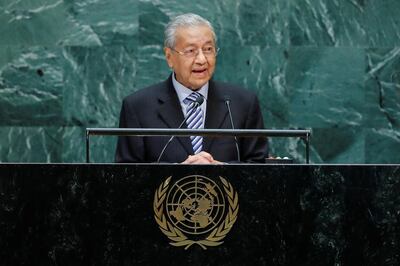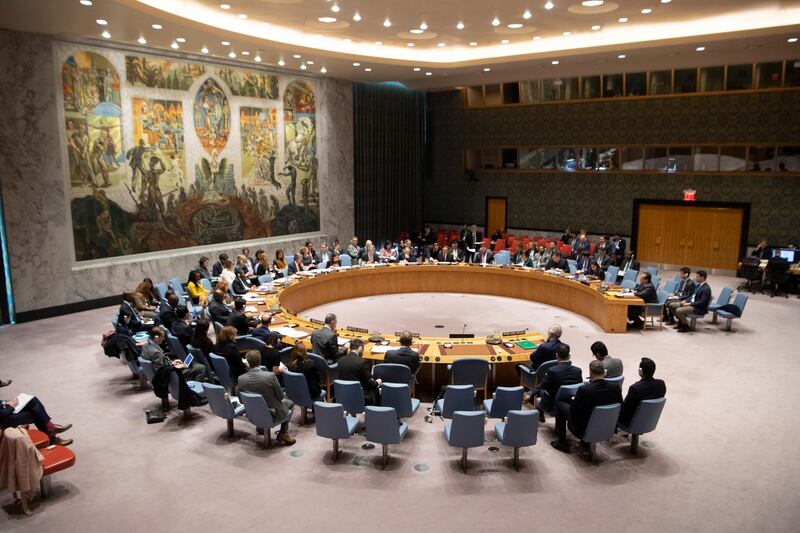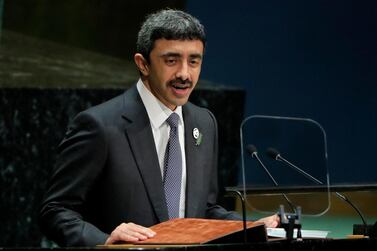Over the years the United Nations has been called many things – toothless, lacklustre, a talking shop. However, one strength it has, which last week's gathering of the UN General Assembly demonstrated, is that there is simply no other body with comparable convening power. Heads of government from around the world turned up to address the assembly from a pulpit that both elevates speakers through its prestige, yet also reminds the mighty that here, at least, they are just one of 193 theoretically equal members.
Although climate change somewhat inevitably dominated the week, given that the annual meeting had started with the special summit organised by UN secretary general Antonio Guterres, many other issues were raised. One that deserved much more attention – for it is crucial to the organisation's future – was an overhaul of the UN itself, which has been raised repeatedly over the years by a growing chorus of world leaders.
Talk of reforming the organisation is nearly as old as it is. Nearly every secretary general has had his own plans, some of which have led to the successful launch of programmes and agencies or better bureaucratic co-ordination while others have fallen by the wayside. Who now talks of the “responsibility to protect”, which was dealt a fatal blow by the UN’s ineffectiveness in the face of carnage in Syria and Libya?
World leaders have also called for a rethink of the architecture of global security and governance. In his speech to the general assembly, for example, Malaysian Prime Minister Dr Mahathir Mohamad raised the most critical reform – that of the UN Security Council. Referring to the establishment of the UN and the powers given to the permanent members of the council – the US, UK, France, Russia and China – he said: “Almost three quarters of a century ago, five countries claimed victory in the Second World War. On the basis of that victory, they insisted on the right practically to rule the world.” The sanction of veto that each had, he said, “killed the very purpose of the great organisation that they had created. It ensured that all solutions to all conflicts could be negated by any one of them."
Nor is he alone in challenging the global order. In 2010, then US president Barack Obama backed India's ambition for permanent membership of the council. In an address to India's parliament, he said: "The just and sustainable international order that America seeks includes a United Nations that is efficient, effective, credible and legitimate."
And this year Ma Zhaoxu, China's permanent representative to the UN, said member states "have established with greater clarity that the reform should give priority to greater representation and voice of developing countries, especially African countries in the council and to creating more opportunity for small and medium-sized countries to be involved in the work of the council".
The calls for reform are a step in the right direction. After all, why should a settlement from 1945 stand unaltered today?
Take Britain and France. True, they might still be the fifth and sixth largest economies in the world but they are far behind the US and China. The two European states will probably retain outsized soft power for decades but there is still some truth to the suggestion that they have not taken into account the words of a former Danish minister. On the continent, Kristian Jensen said: “There are small nations, and there are countries that have not yet realised they are small nations.”
If one were to start from scratch today, would one award London and Paris veto power, and not, say, New Delhi, Jakarta, Tokyo or Lagos? Such an imbalance would be impossible to justify. The G4 nations – Japan, India, Brazil and Germany – have in the past all supported each others’ bids for permanent seats. Professor Jeffrey Sachs of Columbia University has suggested adding India, with South Korea and Japan to have an alternating seat, a joint place for the 10-member Association of Southeast Asian Nations, and another one to rotate among other Asian countries.

Either way, the case for reform of the security council is clear. The dominance of the old five is indefensible and does not reflect the demographics of the 21st century nor the rise of developing countries – let alone the cultures and religions to which the UN’s mostly western founders did not belong.
The trouble, as always, is locating the political will necessary for action to take place. The US has long been wary of the UN – and has been in arrears for its dues as a member state for a long time.
In Donald Trump it has a president even less likely to cede anything that could be portrayed as an inch of American sovereignty. Were it not for Brexit, there might have been a chance that Britain and France could have traded their seats for a new one to be held by the European Union. China and Russia, both of which have called for the council to be more representative in its make-up, ought in theory to welcome new permanent members that represent the power shift eastwards, closer to home. The temptation for all five, however, is to reject any dilution of their own special positions.
In the long run that would be disastrous, as they would be doing so at a terrible cost to the legitimacy of the UN.
Imagine the world in 2050 when, according to PriceWaterhouseCooper's latest analysis, six of the seven largest economies in the world are projected to be emerging economies, with China first, India second and Indonesia fourth; the UK will be down to 10th place and the EU's share of global GDP will fall to 9 per cent.
If the status quo in the security council currently seems insupportable, by then it would be preposterous. So it is not a question of if reform must come. The only question is when.
Sholto Byrnes is a commentator and consultant in Kuala Lumpur and a corresponding fellow of the Erasmus Forum






